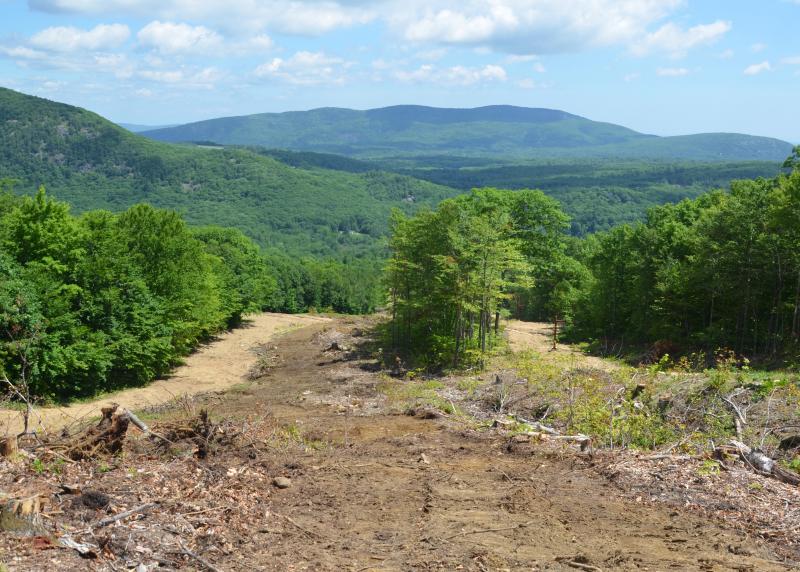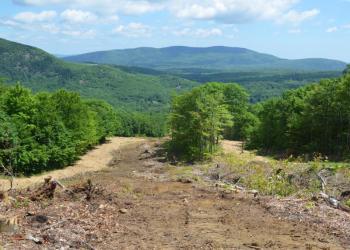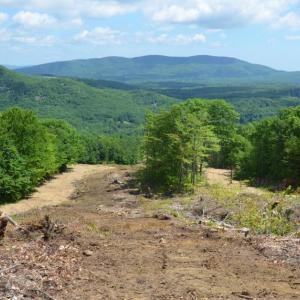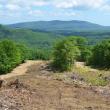Camden retains engineer to ensure Snow Bowl environmental compliance
CAMDEN — The municipally-owned Camden Snow Bowl is about two acres away from triggering a state requirement for the town to obtain a Dept. of Environmental Protection Site Location of Development permit for its prior redevelopment work and recent trail-making; therefore, the Select Board agreed May 18 to contract with an engineer to ensure compliance.
The result will also provide a comprehensive overview of what has been built and developed on the 213.4 acres of Ragged Mountain land that the town owns.
The board voted 5 to 0 to contract with Camden Civil and Environmental Engineer Jeff Senders to obtain a Site Location of Development Act Permit from the Maine DEP for previous development of the Snow Bowl.
Senders, who formerly served on the town’s Planning Board, will be paid $31,800 to map, create pre- and post-development plans, as well as a stormwater management plan, and prepare a Site Location of Development Act permit application to be submitted to the DEP. Permitting fees and expenses such as intensive soils mapping are not included in the contract
“As the Town works to implement necessary infrastructure improvements on the ski mountain and elsewhere on the Ragged Mountain Recreation Area property, including proposed non-downhill trail improvements in partnership with the Coastal Mountain Land Trust (Round the Mountain trail), and other single-track mountain bike trail improvements, it is critically important to ensure that the Town remains in compliance with the State environmental regulations,” wrote Camden Planning and Development Director Jeremy Martin, in a May 13 memo to the Select Board and Town Manager Audra Caler.
Maine requires DEP review of large-scale projects that are more than 20 acres of size. Camden did not pursue this permit when it initiated the Snow Bowl redevelopment project in 2014, as the anticipated environmental impact was to cumulatively affect less than 20 acres.
Over the years, however, with the creation of the cross-country ski Kuller trail, the 2012 installation of a septic system, the large trail expansion and construction in 2014, and any current ongoing trail-building for mountain biking, the 20-acre threshold is close.
Town Manager Caler told the Select Board that Camden, “has been right up against the line for some time,” and that it would be in the best interest of the town and the environment to pursue a permit.
“A permit is issued if the project meets applicable standards addressing areas such as stormwater management, groundwater protection, infrastructure, wildlife and fisheries, noise, and unusual natural areas,” according to the DEP.
“It’s a lengthy process,” said Camden Planning and Development Director Jeremy Martin.
He said there would be time for, “ a lot of outreach and public comment.”
At the same time, any future changes to Snow Bowl, such as more trails and lodge work, will trigger changes to the existing storm water permit.
“Any additional square footage of structure (non- vegetated surfaces) will necessitate an individual stormwater permit, and possibly a SLODA permit depending on size,” wrote Martin. “In addition, it is likely that NRPA permits will be needed for stream crossings, soil disturbance adjacent to a resource, and possible wetland alteration impacts. None of these worthy projects can move forward without the benefit of the required state permits.”
Martin told the Select Board May 18: “I walked the site with [Snow Bowl Director] Beth Ward and know what lane we need to be in. Right now we are on hold with some trail work.”
The board will decide at its June 4 meeting from which account — Select Board contingency, or professional services — to pay for the permit work.
Event Date
Address
United States





























